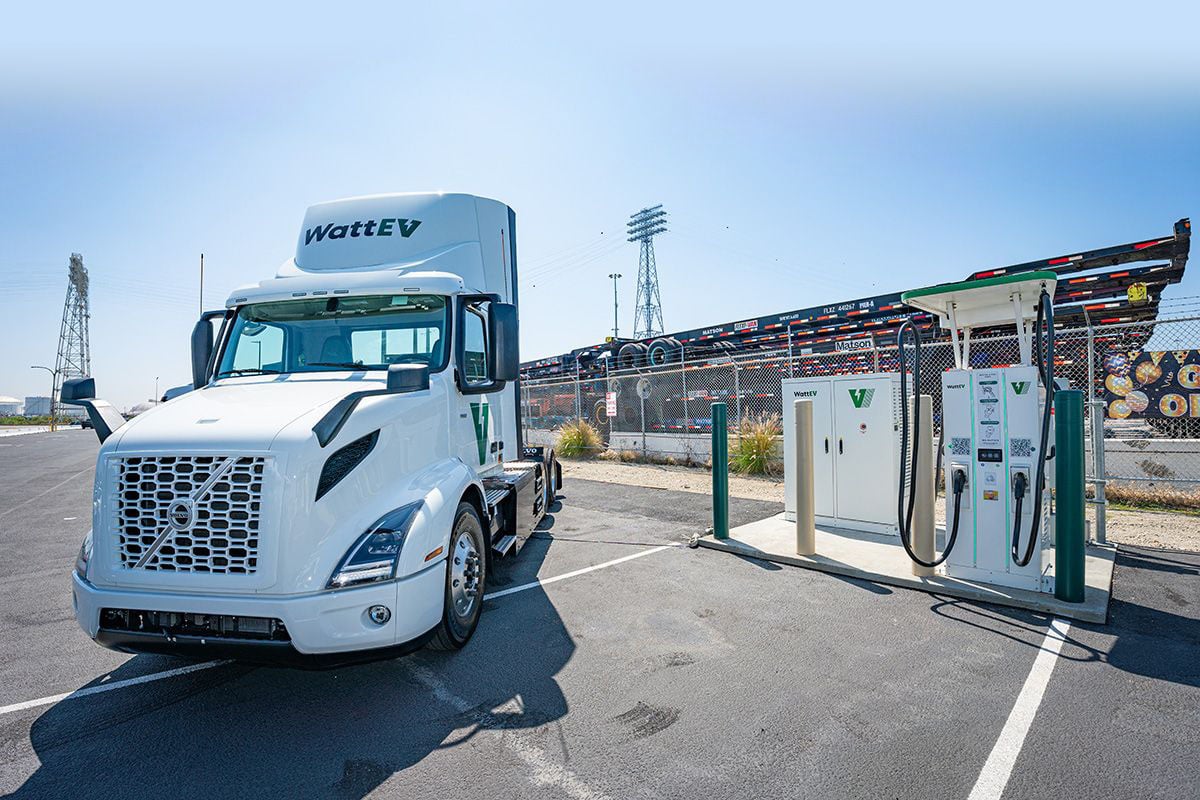WattEV, a prominent developer of electric truck charging infrastructure, has received a groundbreaking $75.6 million in federal grants from the U.S. Federal Highway Administration (FHWA). This funding, the largest in this FHWA grant cycle, will be used to construct three additional commercial electric truck charging depots in California.
WattEV’s CEO, Salim Youssefzadeh, announced, “The FHWA funding awards come on the heels of the company receiving $33.6 million in late 2023 from the Transportation Corridor Enhancement Program, bringing WattEV’s total recent federal funding awards to $109 million.”
See also: WattEV Unveils Largest Electric Truck Charging Depot
Youssefzadeh emphasized the significant impact of these investments on the development of public truck charging infrastructure, crucial for commercial freight electrification in the West Coast and beyond. WattEV, known for its Truck-as-a-Service (TaaS) model, offers comprehensive solutions including Class 8 battery-electric trucks, maintenance, insurance, and charging network access.
The FHWA’s Charging and Fueling Infrastructure Discretionary Grant Program (CFI) 2023-24 has awarded two separate grants to WattEV. The first grant, a substantial $56 million, was jointly awarded to WattEV and the San Joaquin Valley Air Pollution Control District (APCD). It will fund two state-of-the-art truck charging sites in Taft and Gustine, California, crucial for the I-5 freight corridor. Liane Randolph, Chair of the California Air Resources Board (CARB), highlighted the importance of robust infrastructure for a zero-emissions future.
These new sites will enable charging for thousands of trucks annually and incorporate solar panels and battery electric storage systems to ensure grid stability and cost-effectiveness. Samir Sheikh, Executive Director for the San Joaquin Valley APCD, acknowledged WattEV’s role in advancing zero-emissions freight infrastructure.
The second CFI grant, amounting to $19.6 million, is for a project in partnership with the City of Blythe. It aims to establish a multi-class electric vehicle charging facility on a 127-acre parcel in Riverside County, California. This will further support sustainable transportation and interstate electric truck commerce.
Youssefzadeh noted WattEV’s leadership in adopting the new MCS charging standard, which enables rapid recharging for semi-trucks. This advancement is expected to significantly influence the adoption of electric trucks for longer freight routes.
These grants will enable WattEV to expand its MCS charging network, crucial for reducing downtime for truck drivers. The company’s first MCS chargers are set to debut in early 2024 at its Bakersfield charging depot, partially funded by the California Energy Commission.
About WattEV: WattEV is dedicated to transitioning U.S. trucking transport to zero emissions. By combining business and technology innovations, WattEV aims to provide truckers and fleet operators with the lowest total cost of ownership. The company’s goal is to deploy 12,000 heavy-duty electric trucks in California by 2030. More information is available at WattEV.com.








